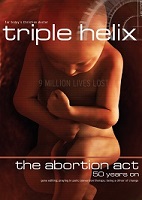Geoffrey Robinson MP wants to bring in an opt-out system for organ donation in England. His Organ Donation (Deemed Consent) Bill [1] is due its second reading (debate stage) on 23 February 2018.
In 'deemed' (presumed) consent, a person, unless he or she specifically 'opts out', is assumed to have given consent to the harvest of their organs after death, even if their wishes are not known. Although relatives may be consulted (a so called 'soft' opt out), to ascertain any wishes of the deceased expressed before death, their views can still be overruled by the state should they decide against transplantation.
Robinson's private member's bill may be overtaken by a new government bill seeking to achieve the same thing. The government is soon to launch a consultation which proposes 'changing the current law on organ donation consent whilst also allowing people to opt out if they want to'. [2] Both Theresa May, the prime minister and Jeremy Corbyn, the leader of the opposition have signalled support.
However, evidence for the claim that an opt-out system will increase transplants is still lacking. [3] In Wales, where an opt-out system was introduced in December 2015, there has actually been a small dip in the number of deceased donors, from 64 in 2015-16 to 61 in 2016-17. This resulted in a drop in organ transplants from 214 to 187 respectively.
As it currently stands, 6% of the Welsh population has opted out of organ donation. This is a group of people who in an opt-in system were still potential donors, depending on their families' wishes - they may not have ended up donating organs, but we just don't know.
The Nuffield Council advised in October that robust evidence is needed before any change to the law is considered. [4] Hugh Whittall, Director of the Council said: 'The evidence points very strongly to the fact that decisions about deceased organ donation are most effective when they are based on the known wishes of the donor, and involve discussions between trained professionals and relatives.'
These words of caution should give us pause for thought. As I have argued elsewhere, [5] whilst the donation of an organ with the intention of preserving the life or health of another person is a sacrificial act consistent with biblical morality and walking in the footsteps of Christ, the harvesting of an organ without the permission of the individual before death or his/her next of kin after death is inconsistent with biblical teaching about ownership and stewardship of the body.
Stewardship of the body, even after death, lies with the person whose body it is, and with their family. There are many biblical examples of people giving instructions about what was to happen to their bodies after death and these were respected by governing authorities. Pharaoh, for example, gave permission to Joseph to bury his father Jacob in Canaan in the tomb of his fathers in accordance with Jacob's wishes. [6] Joseph gave similar instructions about what was to be done with his own bones. [7] Donation must be without coercion and the final decision must lie with the family based on what the person would have wanted, if this is known. Organs are not the property of the state and must not be 'taken' without permission, however needy any prospective recipient may be.
The issue has been covered in much more depth on the CMF Blog. [8]
Review by Peter Saunders CMF Chief Executive
































